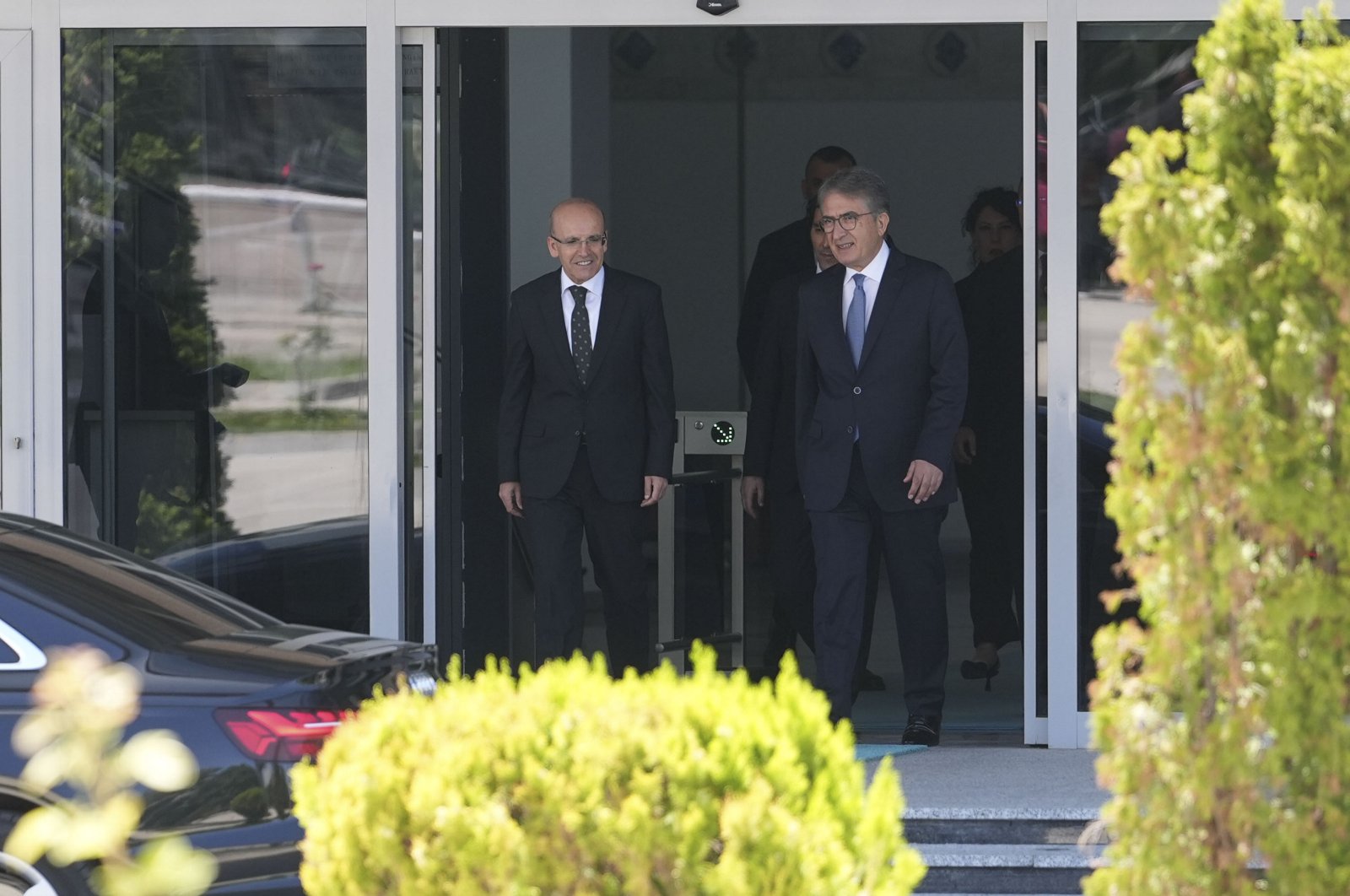
Treasury and Finance Minister Mehmet Şimşek on Monday received a delegation led by Yalçın Karatepe, deputy chair of the main opposition Republican People's Party (CHP) in charge of the economy, for talks on an array of economic matters.
The closely watched meeting that lasted more than four hours came almost two weeks after President Recep Tayyip Erdoğan paid a return visit to CHP Chair Özgür Özel, stepping into the headquarters of his party’s main rival after 18 years in a bid for political normalization.
Erdoğan and Özel first met in the aftermath of the March 31 municipal elections, where the ruling Justice and Development Party (AK Party) lost several strongholds to the CHP.
In a news conference following the meeting at the Treasury and Finance Ministry, Karatepe said the delegation conveyed several proposals to Şimşek, including an adjustment to the minimum wage and an increase in pensions.
"We conveyed our demands and views under four main headings," Karatepe said. These include a mid-year increase in the minimum wage, a significant boost to pension payments, updates to agricultural subsidies and the pricing of agricultural products, and addressing inequities in the tax system.
In addition to the traditional annual revisal announced in January, the monthly net minimum salary was also raised in July for the past two years to ease the pressure on households.
However, the government has said it does not have plans for such a hike this year and will stick to a single, nearly 50% increase for 2024 announced in January.
The central bank has also warned that additional hikes could complicate its efforts to anchor inflation expectations.
"We strongly oppose the decision not to implement a wage hike in the latter half of the year," Kartepe said. He further emphasized that alongside adjustments for inflation, both minimum wage earners and pensioners require additional increases to cope with rising living costs.
"I did not get the impression that there would be an increase in the minimum wage," Karatepe stated.
Inflation, the biggest challenge for authorities, reached an annual 75% in May, which is said to mark the peak before a series of interest rate hikes and a relatively stable Turkish lira bring relief.
Türkiye started reversing years of loose policy following the general and presidential elections last May and has been pursuing efforts to rein in inflation, curb budget and current account deficits and rebuild foreign exchange reserves.
Since June last year, the country's central bank has gradually lifted its benchmark policy rate to 50% from 8.5% and has said it would "do whatever it takes" to prevent the inflation outlook from deteriorating.
Karatepe also highlighted discussions on tax fairness, where he said they conveyed the party's views and criticisms regarding the current tax system.
The government has finalized a comprehensive tax reform package that includes the imposition of minimum corporate and income taxes and will submit it to Parliament in the coming days.
The proposed legislation is part of a broader effort to enhance the country’s fiscal discipline and ensure a more equitable tax system. The government has already announced major spending cuts as it moves toward stricter fiscal policies.
The new bill envisages a tax on capital and seeks to increase the share of direct taxes, according to officials.
